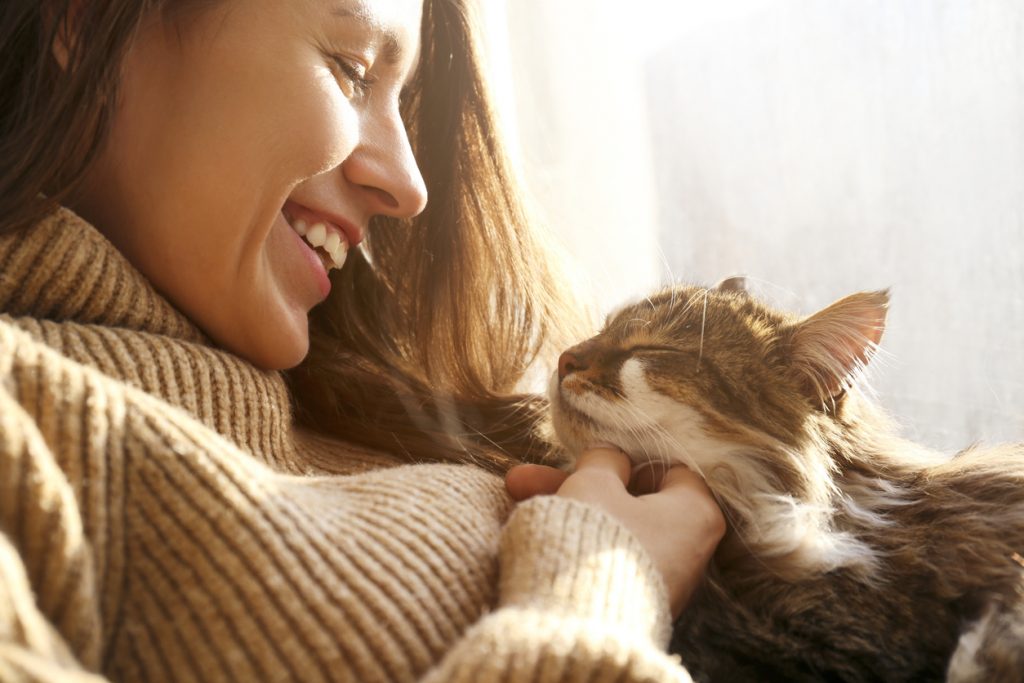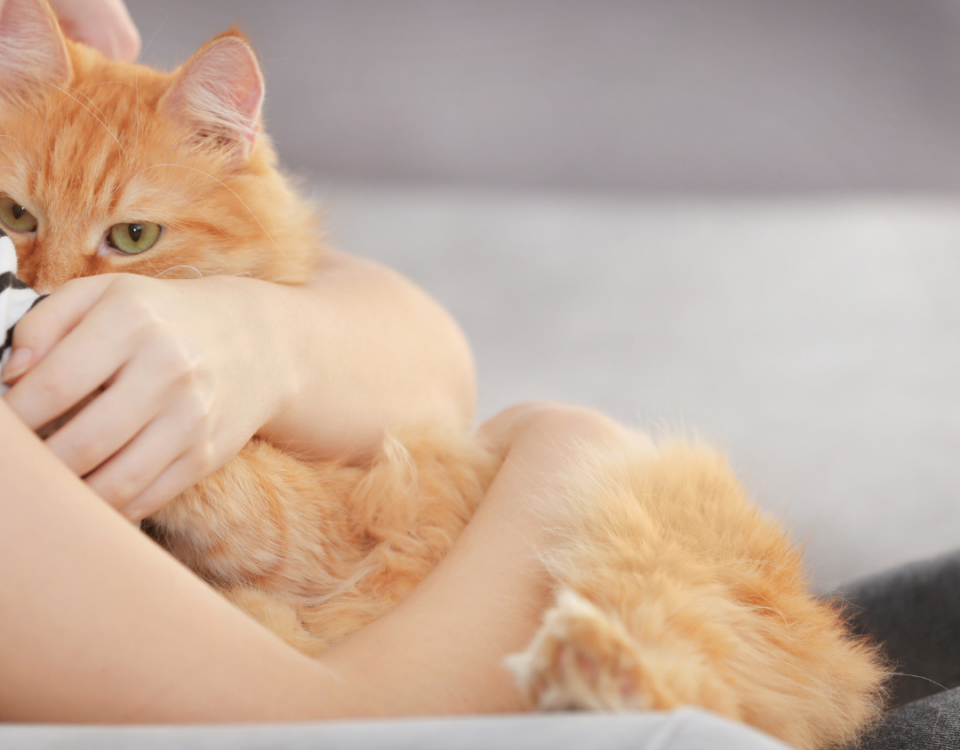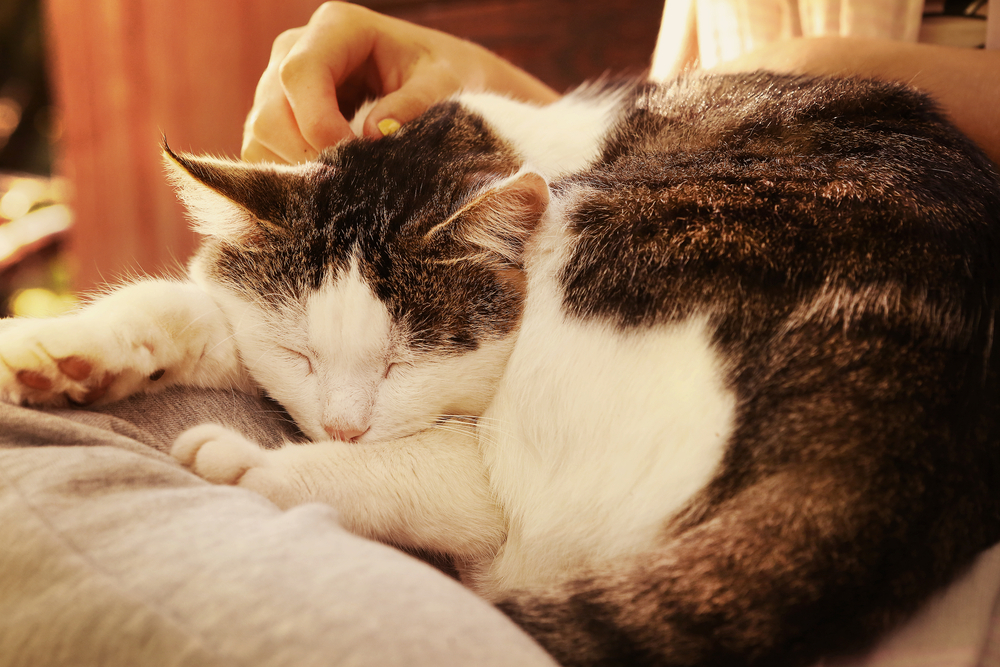
Cat Kidney Disease – When To Euthanize, Signs, Diagnosis and Treatment
August 23, 2021
Blood in Cat Urine – What You Need to Know And Do
September 4, 2021
It can be hard to tell with some feline friends. Is your cat sleeping a lot? Or do you have a lethargic cat? It is possibly symptomatic of a serious illness? Or are they just really lazy?
Here’s everything you need to know about having a lethargic cat (or not, as the case may be):
How much sleep is healthy for a cat?
Your cat can sleep from anywhere to 15 to 20 hours a day. There’s a reason why the phrase “cat nap” exists, after all!
It sounds like a pretty sweet way to live. But it’s actually because domesticated cats evolved as predators in the wild. Ever noticed that lions on nature shows on TV are often shown lying around?
That’s because they’re saving their energy for chasing down those gazelles. Or probably small birds, mice and voles in your cat’s case. When you pair that with a cat’s crepuscular (meaning they appear or are active at twilight) sleeping pattern (whereas we human beings are diurnal), you can see why it might seem like your cat spends a lot of time in bed or on your favourite part of the sofa. Yet there’s nothing unhealthy about that for them.
Knowing your cat and their routine will be key here. The real important bit of knowledge you’ll need to figure out whether you have a lethargic cat on your hands is whether they’re sleeping more than usual.
What is lethargy?
Lethargy is the word that’s commonly used to describe someone who suffers from a grievous lack of energy or weakness. It’s fairly non-specific, but if your cat is ill it is a very common symptom indeed.
There are varying degrees of lethargy
- Mild – where they are much less willing to play than normal.
- Moderate – where they are not willing to play at all and you might have a cat that’s sleeping a lot.
- Severe – where they are unwilling to move at all, struggling to hold their head up even.
What can cause lethargy?
Lethargy can be a symptom of any number of serious illnesses in cats:
- Arthritis
- Cancer
- Dehydration
- Depression
- Heart disease
- Heartworm
- Heat stroke
- Infections and parasites
- Kidney disease
- Poison, ingesting foreign objects or even hairballs that they can’t manage to get out themselves
In addition to a range of others. But, it’s also important to remember that an unexpected change in the weather, such as a severe temperature drop, can also lead to them wanting to rest more than normal.
Is my cat lethargic? How can I tell?
Observe your cat. Do they display any of the symptoms listed above? Try:
- Playing with them – if they don’t seem as interested as normal, this may indicate a problem.
- Rustling your regular treat bag – if they come running to get a little snack, problem probably solved.
- Offering them one of their favourite treats which has a strong aroma – tinned fish is usually a good choice, perhaps salmon or tuna. This is particularly good to try if you’re worried your cat is lethargic and not eating.
If they still don’t seem keen to eat or move, it might be time to start thinking more seriously.
I think my cat is lethargic but eating
If your cat is lethargic but eating, it’s hopeful that their condition might not be as serious. It’s still a worrying sign though – a serious one and something you should get checked out by your vet.
What should I do if my cat is lethargic and not eating?
Act fast. If you cannot entice them to eat or move happily using the methods above, call your vet as soon as you can. Lethargy in cats is usually a sign that something is really wrong.
When is it time to get an emergency vet?
If you try all of the above, nothing works and you also notice all the above symptoms, it’s time to consider calling out an emergency vet. As with most conditions in pets, saving your potentially ailing cat from a trip to across the city or into town to your local vet’s is probably a better idea.
If you have a mobile vet in your area, give them a call. If not, it’s time to get out the cat box.
What happens next?
You vet will most likely be able to treat lethargy with supplementary nutrients and fluids as well as supportive care.
But you should be prepared – especially if you know your cat is ill or very old – to be told that this is simply a common side-effect of their condition. This might mean that you should start to come to terms with saying goodbye.
Because while lethargy might just look like they’re sleeping a lot, your feline friend might be signalling that it’s time to let them go. Whether this means facing the reality that it could be time to put your cat to sleep or simply to prepare to provide for them as other changes continue to affect them in old age, you should try to be ready for it.





